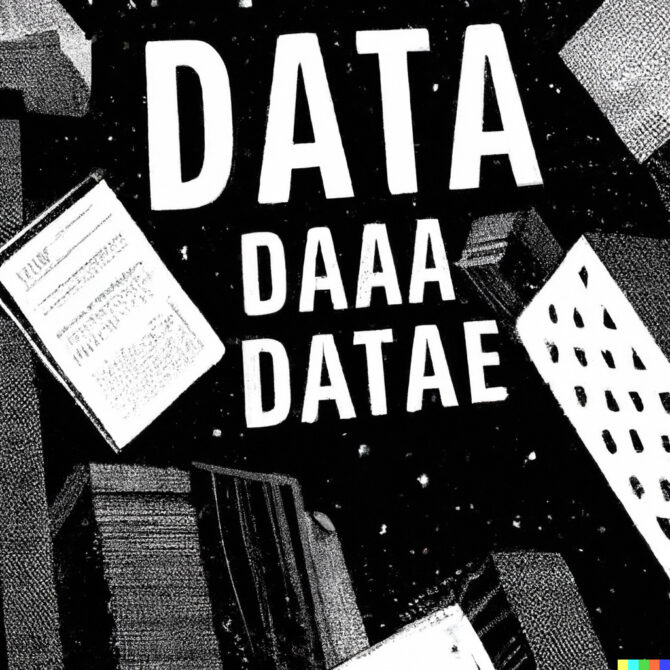An analysis of the pre-election political discourse in Greece

We are using AI algorithms to detect the levels of polarisation, populism and emotion in the speeches of political leaders.
Populism is not equivalent to politicians’ falsehoods, promises, or deceitfulness. It is not synonymous with demagoguery, propaganda, or manipulation.
The question “What is populism?” has preoccupied the academic world for decades. It seems that in recent years, the term “populism” can be found in a variety of contexts beyond scholarly writing. It now pervades journalistic and daily writing, political discourse and debates, and public everyday discourse among citizens. The term has been used to interpret and, more significantly, to stigmatise a wide range of diverse political phenomena, movements, and parties.
In Greece, especially since the Metpolitefsi (regime change) era, populism has been viewed as a crucial element of the country’s political culture. The recent debt crisis and the resulting bailout packages placed populism at the forefront of political and public discourse, sparking both populist mobilisations and anti-populist campaigns. It remains to be seen whether the cycle that opened back then closed with the 2019 elections. Even if this assessment proves accurate, it does not imply that populism has vanished entirely, as instances of populist movements can still be identified both before and after those elections (including during the Prespa Agreement negotiations and the pandemic).
With a new election period having commenced on Saturday, April 22, 2023, it is unsurprising that interest and discourse surrounding populism has been reignited. While it is indeed necessary to examine the populist dimension, it should not be assumed to be omnipresent. Bearing this in mind, a populism index has been included in the assessment of the election speeches delivered by the leaders of the six parliamentary parties.
Detecting polarization in the pre-election political discourse in Greece

Differentiating competition, division and polarisation in political discourse.
What exactly do we understand by the term “populism”?
To conduct a thorough analysis, it is imperative to establish a solid foundation by defining our understanding of the term “populism”. More specifically, we need a practical term that is devoid of normative baggage and stereotypical associations. Our initial objective is to differentiate populism as a political phenomenon from its stereotypical interpretation, which is commonly prevalent in the public domain. Our secondary goal is to provide a precise definition that can guide our analysis.
In public discourse, populism is often associated with negative connotations. It is frequently linked to irresponsibility, irrationality, statism, and waste of resources. However, it should be noted that populism is not equivalent to politicians’ falsehoods, promises, or deceitfulness. It is not synonymous with demagoguery, propaganda, or manipulation. Furthermore, it does not necessarily include conspiracy theories, nationalism, anti-immigration, technophobia, the anti-vaccine movement, or mismanagement of public finances. While certain populist politicians may display some of the aforementioned attitudes or behaviours, none of these characteristics are exclusive to populism.
Within the context of studying populism, there is no absolute consensus on the definition of the phenomenon. There are different research approaches that view populism as an ideology, discourse/political logic, style, strategy, etc. Nevertheless, there is a common agreement that populism involves a confrontational dynamic between the people and the elite. Both these elements, along with the friction between them, are essential to understanding populism.
In the present project, we will be relying on one of the two dominant approaches, which is also the predominant one in the field of political theory. This approach is influenced by discourse theory and focuses on the form of discourse rather than its content. The formalistic approach was initially developed by Ernesto Laclau in an effort to provide a more neutral way of examining populism, devoid of normative biases that have permeated other analyses of the phenomenon. To achieve this, the theory is highly abstract in nature.
The slow death of open data in Greece

What led to the transition from innovative transparency to the “sealing off” of data during the pandemic?
The criteria to identify populist discourse
Populism is viewed as a discourse or a specific political logic that aims to construct the collective subject of “the people”. The term is considered neutral and is not assigned a solely positive or negative connotation or content.
According to this approach, two essential operational criteria have been established to identify populist discourse. These criteria are people-centrism and anti-elitism. A discourse can be deemed populist if it is articulated around the central concept of “the people” and if it generates a predominantly dichotomous representation of society, dividing it into two basic camps formed based on equivalences: the establishment or the “elites” on one side, and the “people” or the non-privileged on the other. Both criteria must be present for a discourse to be classified as populist.
The placement of the signifier “people” within a discourse is crucial. If this signifier does not serve as a focal point around which other signifiers can be articulated and derive their meaning through this articulation but is instead situated on the periphery of the discourse, it cannot be regarded as a populist discourse.
Within the context of this discourse, the popular subject emerges through the logic of equivalence. In the social arena, where diverse social groups have unmet needs, the populist discourse seeks to forge relationships of equivalence between these demands, thereby giving rise to the collective subject of “the people.” As previously mentioned, there is no particular content or ideology that a political party must have in order to be classified as populist. Populism concerns the particular political logic of articulation. The nature of the content that is articulated, whether it is progressive or reactionary, right or left, exclusive or inclusive, pertains to the specific content to be articulated.
The strictly formalistic approach outlined above provides a rigorous definition of the term – in contrast to what is typically encountered in the public domain – that is practical for the empirical analysis of political speeches and does not entail superfluous additions that may work only on a case-by-case basis.
